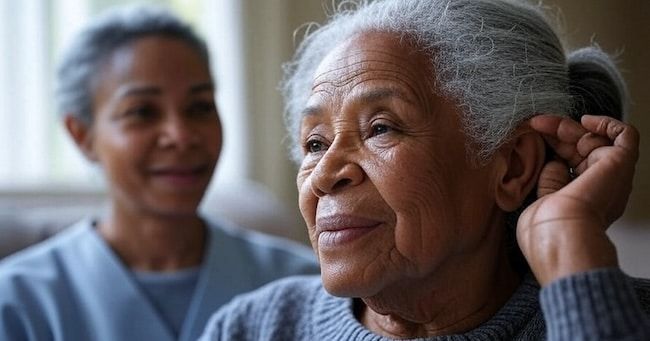5 Signs It’s Time to Consider In-Home Care for Your Loved One

Caring for an aging or disabled loved one is a labor of love, but it can also present challenges.
Caring for an aging or disabled loved one is a labor of love, but it can also present challenges.
- John William
Caring for an aging or disabled loved one is a labor of love, but it can also present challenges. As health conditions evolve, you may wonder if they need additional support. In-home care offers a compassionate solution, providing personalized assistance while allowing your loved one to remain in the comfort of their home. But how do you know when it’s time to seek professional help? Here are five key signs that may indicate it’s time to consider in-home care.
1. Increased Difficulty with Daily Activities
One of the most common signs is the struggle to manage daily tasks such as cooking, cleaning, bathing, or dressing. If your loved one is skipping meals, wearing the same clothes repeatedly, or letting household chores pile up, it could be a sign they need help. In-home caregivers provide assistance with these essential activities, ensuring that your loved one maintains their dignity while living comfortably and safely.
Maintaining a routine is crucial for physical and emotional well-being. A professional caregiver can help establish structure by managing daily tasks, allowing your loved one to enjoy a sense of normalcy without feeling overwhelmed.
2. Changes in Personal Hygiene or Appearance
Neglected personal hygiene is a red flag that should not be ignored. If you notice body odor, unkempt hair, or soiled clothing, it may be a sign that your loved one is struggling to care for themselves. Conditions like arthritis, memory loss, or mobility issues can make grooming challenging.
An in-home caregiver can provide gentle, respectful assistance with bathing, dressing, and other personal care routines. They ensure your loved one feels clean and comfortable while fostering self-esteem. This can be especially important for individuals who feel embarrassed about needing help from family members.
3. Memory Loss and Cognitive Decline
Memory issues, especially those associated with Alzheimer’s disease or other forms of dementia, can present serious risks. Forgetting to take medications, missing appointments, or leaving the stove on can be dangerous. If your loved one frequently forgets where they are, becomes disoriented, or exhibits signs of confusion, in-home care can provide the support they need.
Trained caregivers can help manage medication schedules, offer reminders, and ensure the home remains a safe environment. They can also engage in mentally stimulating activities that promote cognitive health and provide companionship, which is essential for emotional well-being.
4. Frequent Falls or Mobility Issues
Falls are one of the leading causes of injury among seniors, and even a minor fall can lead to serious complications. If your loved one struggles to move around the house, needs assistance standing up, or frequently loses their balance, it’s time to consider in-home care.
Caregivers can help with mobility, ensuring your loved one safely navigates their home. They may also recommend modifications like grab bars, non-slip rugs, or walkers to prevent falls. By addressing mobility issues proactively, in-home care can significantly reduce the risk of injury and enhance your loved one’s confidence in their ability to move around independently.
5. Caregiver Burnout
If you’ve taken on the role of caregiver, you know how rewarding but exhausting it can be. It’s common to feel overwhelmed, especially if you’re balancing caregiving with work, family, and other responsibilities. Caregiver burnout can manifest as physical exhaustion, emotional fatigue, irritability, or even health problems of your own.
In-home care provides much-needed respite. A professional caregiver can step in to provide support, allowing you to rest, recharge, and focus on your own well-being. This ensures that your loved one receives consistent, high-quality care while you maintain your own health and peace of mind.
The Emotional Benefits of In-Home Care
In addition to addressing physical needs, in-home care provides significant emotional benefits. Many seniors experience feelings of isolation, especially if they live alone or have limited social interaction. A caregiver offers companionship, engaging your loved one in conversation, activities, and shared experiences. This human connection is vital for mental health and can reduce feelings of loneliness and depression.
For family members, knowing a professional is caring for your loved one offers peace of mind. You can trust that their needs are being met by someone trained to handle both routine and complex situations.
Tailoring Care to Individual Needs
One of the greatest advantages of in-home care is its flexibility. Care plans can be customized to meet the unique needs of your loved one, whether they require a few hours of assistance each day or round-the-clock support. This personalized approach ensures that care is delivered in a way that aligns with their preferences, routines, and health conditions.
Additionally, in-home care allows your loved one to remain in familiar surroundings. For many seniors, staying at home provides a sense of security and independence that cannot be replicated in a care facility. They can continue to enjoy their favorite chair, sleep in their own bed, and maintain their usual routines, all while receiving the support they need.
Conclusion: Making the Right Decision
Recognizing the need for in-home care is a significant step, and it’s important to approach the decision with compassion and understanding. If you’ve noticed any of these five signs—difficulty with daily tasks, changes in hygiene, cognitive decline, mobility issues, or caregiver burnout—it may be time to explore in-home care options.
By investing in professional care, you’re not only ensuring the well-being of your loved one but also enhancing their quality of life. In-home care offers the perfect balance of independence and support, allowing your loved one to age with dignity while providing you with peace of mind.
If you’re ready to learn more about in-home care services, reach out to a trusted provider today. Together, you can create a care plan that meets your loved one’s needs and provides the support your family deserves.
You might also like
CHARLIES ANGELS BLOG



